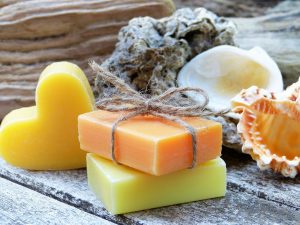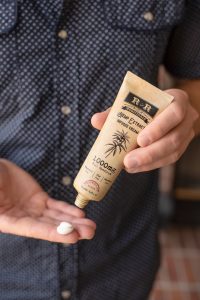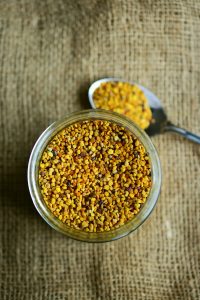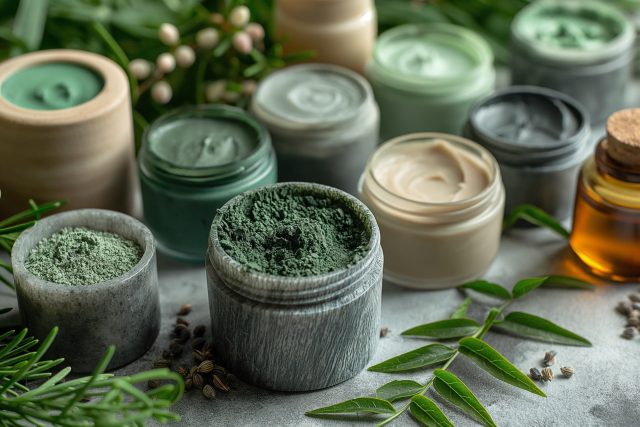Winter is horrible news for your skin. Your skin can be drained of moisture once the temperatures start going down and the air turns dry, causing it to get dry, irritated, and even cracked. Changing your skincare routine can keep your skin fit and healthy through winter. Following are some tips to help you have hydrated and healthy skin all winter.
Hydrate from the Inside Out: One of the most significant winter skincare steps involves hydration. While you may not feel that thirsty when it is colder outside, the dry air can still dehydrate your skin. Drinking enough water supports the skin’s natural balance of moisture. Take a minimum of 8 glasses of water each day. You can also drink herbal teas and warm water with lemon to stay hydrated and make your immune system work smoothly.
Change to a Richer Moisturizer: During winter, the cold air and indoor heating can make your skin lose its natural oils, becoming dry and dull. Combat this with a richer, more nourishing moisturizer. Look for ingredients like hyaluronic acid, glycerin, or ceramides that help lock in moisture and strengthen the skin barrier. Apply right after showering when the skin is still damp to lock in as much moisture as possible.
 Exfoliate Gently: While exfoliation is a must to remove dead cells and to ensure the turnover of cells, it is important to be gentle with your exfoliation routine during winter. Harsh exfoliants can strip your skin of its natural oils, making it even more susceptible to dryness. opt for a mild exfoliant or a chemical exfoliant containing AHA or BHA, which will gently remove dead skin cells without causing any irritation. Try exfoliating once a week or when needed, as this is all your skin can bear.
Exfoliate Gently: While exfoliation is a must to remove dead cells and to ensure the turnover of cells, it is important to be gentle with your exfoliation routine during winter. Harsh exfoliants can strip your skin of its natural oils, making it even more susceptible to dryness. opt for a mild exfoliant or a chemical exfoliant containing AHA or BHA, which will gently remove dead skin cells without causing any irritation. Try exfoliating once a week or when needed, as this is all your skin can bear.
Use a Humidifier: Indoor heating systems, though warming, can dry out the air in your home and therefore dehydrate your skin. To combat this, use a humidifier in your bedroom or living area to add moisture back into the air. This will help keep your skin hydrated, especially when you’re sleeping, as your skin naturally loses moisture overnight.
 Protect Your Skin from the Cold: When you’re going outside, make sure to protect your skin from the harsh elements. Cold winds and frigid temperatures can cause skin damage, so be sure to layer up with scarves, gloves, and hats to shield your face and hands from the cold. Don’t forget to apply a thick moisturizer or barrier cream to your face before heading outdoors for extra protection.
Protect Your Skin from the Cold: When you’re going outside, make sure to protect your skin from the harsh elements. Cold winds and frigid temperatures can cause skin damage, so be sure to layer up with scarves, gloves, and hats to shield your face and hands from the cold. Don’t forget to apply a thick moisturizer or barrier cream to your face before heading outdoors for extra protection.
Use Sunscreen Year-Round: Despite winter chill and even a lack of strong feelings of the sun, it still affects one’s skin. Winter sun also manages to reflect off the top layer of snow, consequently increasing your UV exposure. To protect against sun damage, stay with your broad-spectrum sunscreen (SPF 30 or higher) as part of your daily, cloud-free, snowy application to maintain protection against damage prevent early skin aging, and decrease the risk for skin cancers.
Switch to Gentle Cleansers: Your skin is much more sensitive during winter and tends to become dry. So, use a gentle, non-drying cleanser that doesn’t strip your skin of its natural oils. Avoid using cleansers containing alcohol, sulfates, or fragrances, which can be too harsh for your skin and cause irritation. Instead, go for creamy or oil-based products that will help nourish your skin while cleaning it.

Don’t Forget About Hands and Lips: Your hands and lips are most vulnerable and usually the first signs of winter dryness. Keep your hands soft by using a rich hand cream every day, especially after washing your hands. A thick nourishing lip balm will protect your lips from cracking and chapping. Beeswax, shea butter, or petroleum jelly is a must in such products to lock the moisture in and avoid cracked and fissured skin.
Give Extra Care to the Dry Spots
Use thicker creams or oils for those specific parts of the body, like elbows and knees. For deep moisturizing and rejuvenation of such dry skin, products with shea butter, cocoa butter, or coconut oil work perfectly. Smear these generously onto rough areas and leave them on through the night for maximum hydration.
Eat Healthy: What you eat can affect the health of your skin. Include foods rich in vitamins A, C, and E, which are known to rejuvenate the skin. Fatty acids from sources like salmon, flaxseeds, and walnuts help keep your skin’s moisture levels intact.

Hydrating fruits like oranges, apples, and pears can also help improve your skin’s appearance and keep it plump and healthy.
By making these small but effective changes to your skincare routine, you can keep your skin hydrated, smooth, and glowing all winter long. Winter may bring colder weather, but it doesn’t have to bring dry, irritated skin. Keep your skin protected, nourished, and well-hydrated, and you’ll enjoy healthy, beautiful skin throughout the season.

























